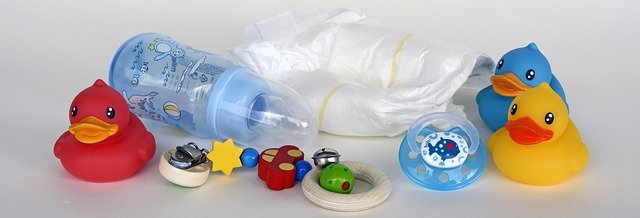How to make baby poop instantly home remedies ; is entirely up to you. What I mean is in order to have an adequate number of stools from your baby, means you have to help the baby at all times as they entirely depend on you at this age. Firstly, make sure that your baby gets longer sleep stretches. For instance, when your baby sleep, accompany them and sleep beside them as well. Making sure that he or she wakes up to feed. This encourages them to sleep longer. ( At least 1 hour is good enough).

Secondly, listen carefully to your baby while she’s breastfeeding for swallowing sound . You must hear or see it during feeds, if not make sure they are feeding. The baby relaxes at the breast and is content for a while after feedings. Above all, make sure that your baby gets plenty of breast milk. Breastfeed your baby at least 8-12 times per day. Most importantly, Making sure that your baby stays awake while suckling. Try and monitor her, to see if her suckling is active for several minutes of feeding. There are, however, some foods that you can try to keep an adequate supply of milk. Moreover, you must also note that the initial milk supply is hormone-driven.
Stool patterns.
Newborn babies are expected to pass stool at least once a day. With an increased frequency of at least two to three times a day as they grow from 1 day to 5 days old. Stools passed in a 24 hours period should increase to 6-8 diaper changes. However, the stool colour ranges from black, greenish to yellow in colour with a think consistency; sometimes, runny and seedy. Their Urine should be pale to medium. After the first month of life, it may be normal for the breastfed baby to go for several days between stooling. That is to say, if the baby is gaining weight well, this inconsistent pattern would be considered normal.
How to make baby poop instantly without crying.
For a 6 months old baby.

How to help your baby poop; You can try and make your baby pass stool without crying by offering water between their normal meals. Diluted fruit juice will also do; 1 part water and 3psrts fruit juice. Give your baby a warm bath to help his or her muscles to relax; this will help the baby poop instantly without any hardships, they might even poop in the bathtub if all goes well. Subsequently, try and gently move your baby’s legs in a cycling motion, why? Because you want to ease or help stimulate their bowels.Which sometimes however causes pain the baby-making them cry during bowel movement. In the same vein, also try to encourage your baby to eat more fruits and vegetables be it pureed or chopped. Likewise, gently massage your baby’s tummy; to help ease the pain and to make them relax.
A happy you.

Although, your baby is showing improved signs in the passing of stool; because of all the numerous efforts you put in, in trying to get him pooping again. This you must admit makes you happy. Similarly, as a new parent. You will always be looking for your baby’s next smile, laugh, and coo—little reassurances that your baby is happy and healthy and that everything is okay. Non the less, you are still encouraged to monitor your baby poop.
Types of Baby Stool
Runny or watery baby poop.
Consequently, runny or watery poop is common in newborn babies. Similarly, an occasional loose and runny poop is not usually a problem. Yet, on the other hand, breastfed baby bowel movements can be loose and runny, it may be harder to tell the difference between normal runny poop and diarrhoea.
Diarrhoea is one of the most common childhood issues in the United States and around the world. However, it can be scary and dangerous. This type is common in breastfed babies. As it will be yellowish in colour. Sometimes, comes with curds and of a seedy texture. When you encounter this do be alarmed because it is a typical breastfed poop. However, if you see two or more watery and loose bowel movements. And suspect that your baby diarrhoea. Do not hesitate to call your baby doctor right away.
Breastfed baby poop.
Breastfed baby stool normally has a frequency of up to three poop diaper changes a day. That is, in the first two weeks of your baby’s life. And in the fourth week, 1 to 2 times a day. However, some babies might not defecate for several days. That is after the 1st month of birth. Breastfed babies, however, pass out meconium in their poop. Thus in the first few hours and days after birth.
It can be referred to as “newborn’s first poop”. Meconium is a sticky, thick, dark green poop that is made up of cells, protein, fats, and intestinal secretions, like bile. In addition, some babies pass meconium while still in the womb during late pregnancy. This stool is soft in consistency and black in colour. After observing meconium black poop for a few days. Your baby’s poop will change colour from black to yellowish. Because all the meconium has been passed out. Subsequently, after the yellow stool, you will realize that you get a changed colour. Thus a green colour and of a soft consistency. Then black again.
What are the seeds in Breast fed stool.
These little seeds, in breastfed baby poop, are undigested milk fat, which is entirely normal. However, it stops being a normal situation when the poop contains blood. Because blood stains passed in baby poop can also appear seedy as well. Due to several conditions; these are explained better under blood in baby poop below.
Formula fed baby stool.
Formula-fed babies pass fewer, but bigger and more smelly stool than breastfed babies. However , their stools are usually a little firmer. Often , the consistency of peanut butter. Healthy formula fed baby poop is typically a shade of yellow or brown in color. Furthermore , formula fed baby poop usually is not runny as that of a breastfed baby. It is usually easier to notice the change in bowel movements and identify diarrhea in formula-fed infants.
Hard baby stool.
Very hard stools may indicate constipation. Or it may be a medical problem. However , your baby may try to push and strain more than usual to pass waste . With great difficulty since the stool will be hard and painful as he or she tries to pass it out. And this for sure causes your baby either fuss or cry while having this bowl movement. Normal baby poop. Normal baby poop is either yellow, green or brown in color. It dies not smell bad especially in breastfed babies. Typically , normal baby poop is seedy and pasty in texture . It can also be runny enough to resemble diarrhea.
Sticky baby pass.
Sticky poop resembles motor oil otherwise known as meconium. This type of stool is passed from two to four days after birth. Hard, brown baby stool. Very hard stools may indicate constipation. It is normally brown in colour. The most common time for constipation and straining is when your baby starts solids. It also may be a medical problem. However, your baby may try to push and strain more than usual to pass waste. With great difficulty since the stool will be hard and painful as he or she tries to pass it out. And this for sure causes your baby to either fuss or cry while having this bowel movement.
Normal baby stool.
Your baby passes normal poop when they are both physically and emotionally ready. Normal baby poop is either yellow, green or brown in colour. It does not smell bad especially in breastfed babies. Typically, normal baby poop is seedy and pasty in texture. It can also be runny enough to resemble diarrhoea.
Teething baby oop.
Babies that are going through the process of teething, however, tend to pass runny poop mainly because teething babies put everything in their mouth and these things might contain germs that will end up upsetting their tummies, therefore, leading to a running tummy. Teething itself is not likely the cause of diarrhoea.
Mucus in baby poop.
The intestines naturally secrete mucus to help stool pass more effectively through the intestines. Sometimes, your baby can pass this mucus along with stool. So there is no need to panic when you come across mucus in your diaper changes. On the other hand, a disagreeable formula may cause mucus in baby poop. However, mucus in the baby’s stool may be a sign of improper digestion. When this happens just change the formula.
Blood in baby stool.
Blood in your baby’s stool can occur at any age. And I must admit this can be very scary for you. However, it is wise to seek medical attention when you come across blood in your baby’s poop. Blood in the baby stool can be caused by different things. These bloodstains are mostly bright red in colour and black when digested. Poop can contain blood stains if tears in the anus or as a result of a small haemorrhoid. Usually, these blood flecks appear like black poppy seeds, it’s often because of breast crackled nipples. That in turn, tends to bleed, so when. This happens the baby suckles the blood while breastfeeding. To sum up, diarrhoea mixed with red blood can be a result of bacterial infection. Therefore do not hesitate to contact your baby’s doctor in such cases.
Baby stool colours: how to make baby poop instantly.
Baby poop changes often vary from texture to consultancy; with the color changing from day to day during the first year of life. And also depending on the baby’s age and what you feed him or her. Non the less , these color changes causes us as parents to worry a lot as well about the baby’s diaper ;amongst our many baby care concerns.
Green baby stool.
Green poop comes Chalky white baby poop could be a warning sign that your baby is not properly digesting food. White colour may indicate a lack of bile from the liver to digest food. In the first few years, you will experience a full range of “normal” baby poop types that simply indicate your baby is healthfully growing and changing. Green baby poop usually comes after meconium poop has cleared up. This poop occurs as a result of too little or too much milk being fed to the baby. So, whenever you get this colour of stool be sure to implement how to make baby poop instantly and that too; do act fast and try and change the baby’s poop back to a normal colour. If you have been feeding less; try and feed more. If you have been feeding more; try and feed less.
Like most breastfeeding mother’s do not rush into assuming that your baby has an allergy to something they are eating, or that the baby has diarrhoea. That’s not it. Why I say this, is because, it is unlikely for a baby to be allergic to something in their mother’s breast milk; because a mother’s milk is genetically matched to her baby. And that breastmilk coats her baby’s intestines to protect them from allergens. In conclusion, if loose green poops continue, do seek medical attention.
White baby stool.
White, pale yellow, chalky grey baby poop is not a good stool type. However, in addition, chalky white baby poop could be a sign that your baby is not properly digesting food. It also can be an indication of a lack of bile from the liver to digest food. To sum up, If you come across this type of white poop. Do contact your baby’s doctor right away, because your baby might be infected with biliary atresia.
Yellowish baby stool.
Normally, yellowish poop is usually passed by breastfed babies. It has no bad odour and sometimes contains whitish curds and is a bit runny. When you get this colour stool just change your baby’s diaper and make room for more!.
Black baby stool meconium.
It is your baby’s first poop and passes a day or 2 after birth. It is black in colour and has mucus and a consistency that is tar-like. This sticky poop resembles motor oil. This meconium, however, is the sticky stuff is the waste that your newborn has been accumulating in utero such as intestinal secretions, cells that flake off his skin, amniotic fluid, and hair. You can help your baby to pass meconium fast by breastfeeding your baby colostrum which is contained in the first milk after birth. Though the process might take longer for formula-fed babies. Meconium may take longer to pass for formula-fed babies.
Orange baby poop.
An orange baby stool can be found in both breastfed babies and in formulating fed babies. This orange-coloured poop occurs from pigments picked up in the baby’s digestive tract. An orange-coloured stool can also be; a result of eating a lot of orange foods. Particularly when the baby is now solids. Furthermore, it can be caused by a combination of the baby’s bile, bacteria, and milk. To sum up, the orange colour in your baby stool is not a serious thing but also an indication of a healthy baby.
Acholic pale stool.
This type of stool is pale and ivory in colour. Your baby passes this type of stool when they have a lack of enough bile secretion into the small intestines. Or when they have some kind of liver disease. However, it is wise to contact your health provider when your baby begins to pass acholic stool.



